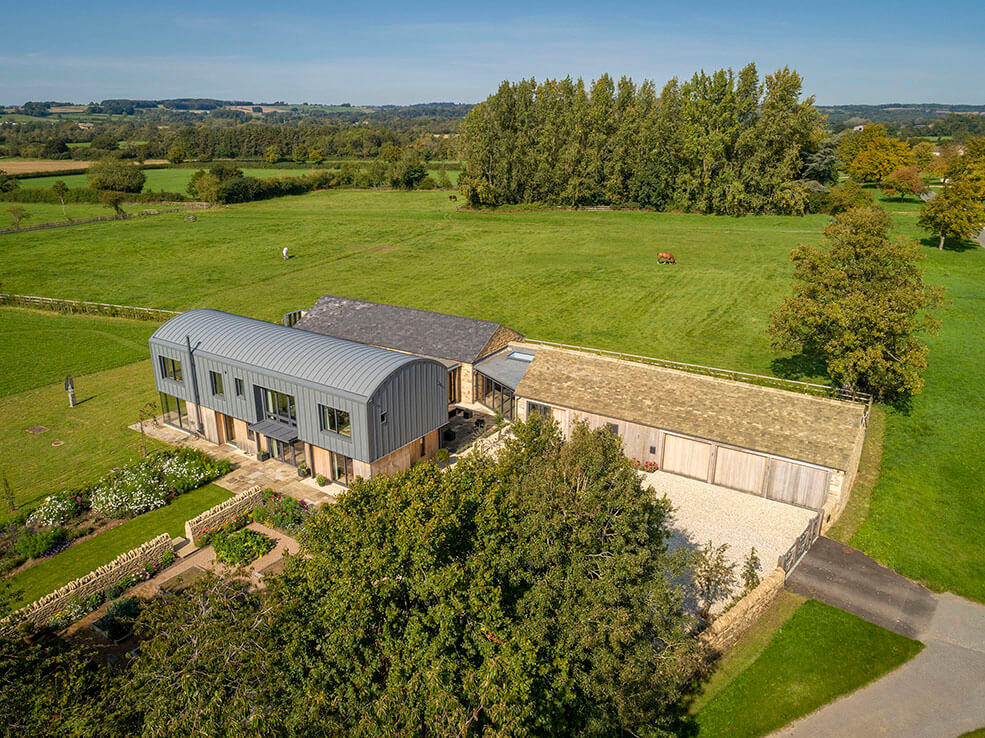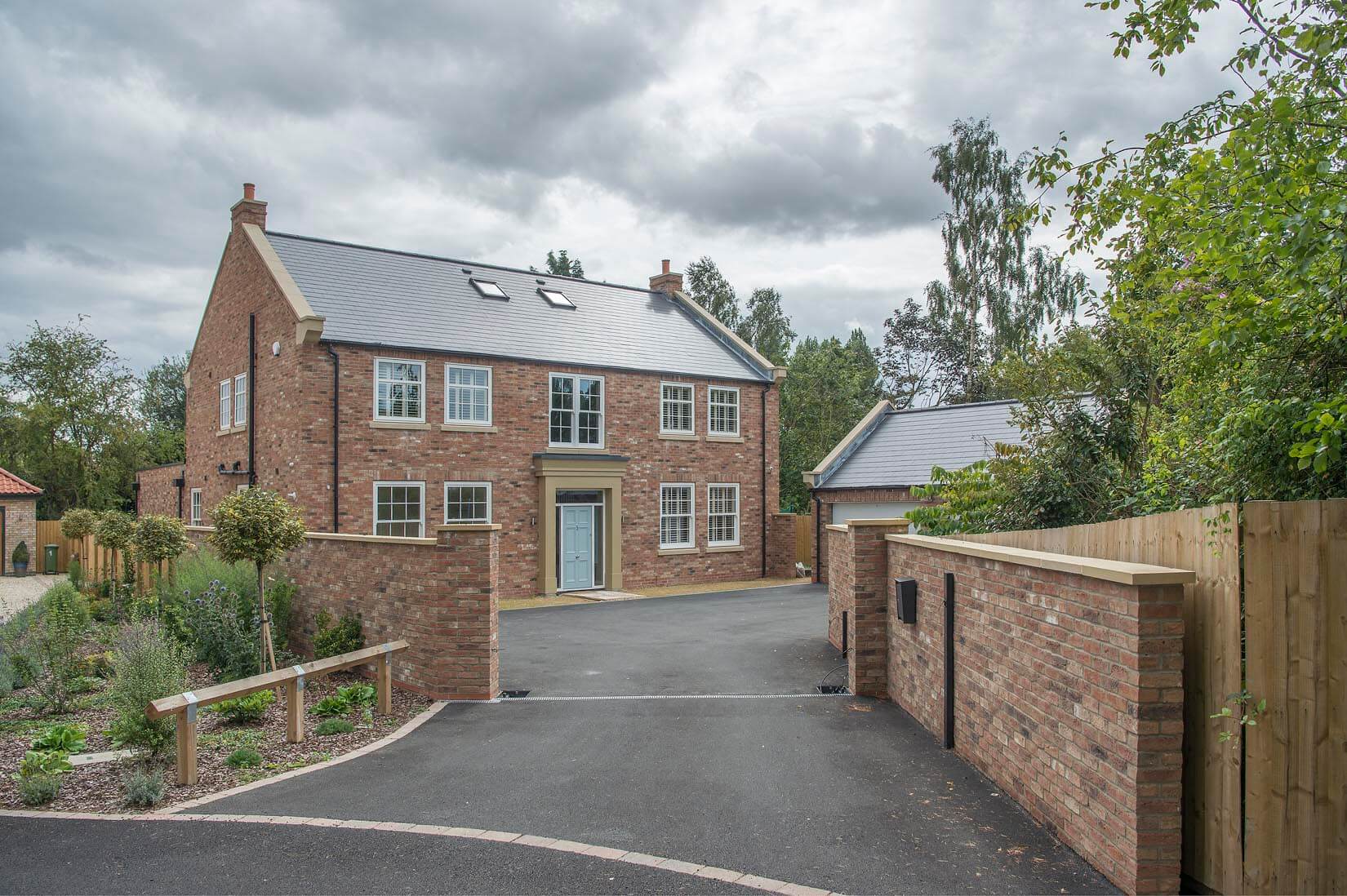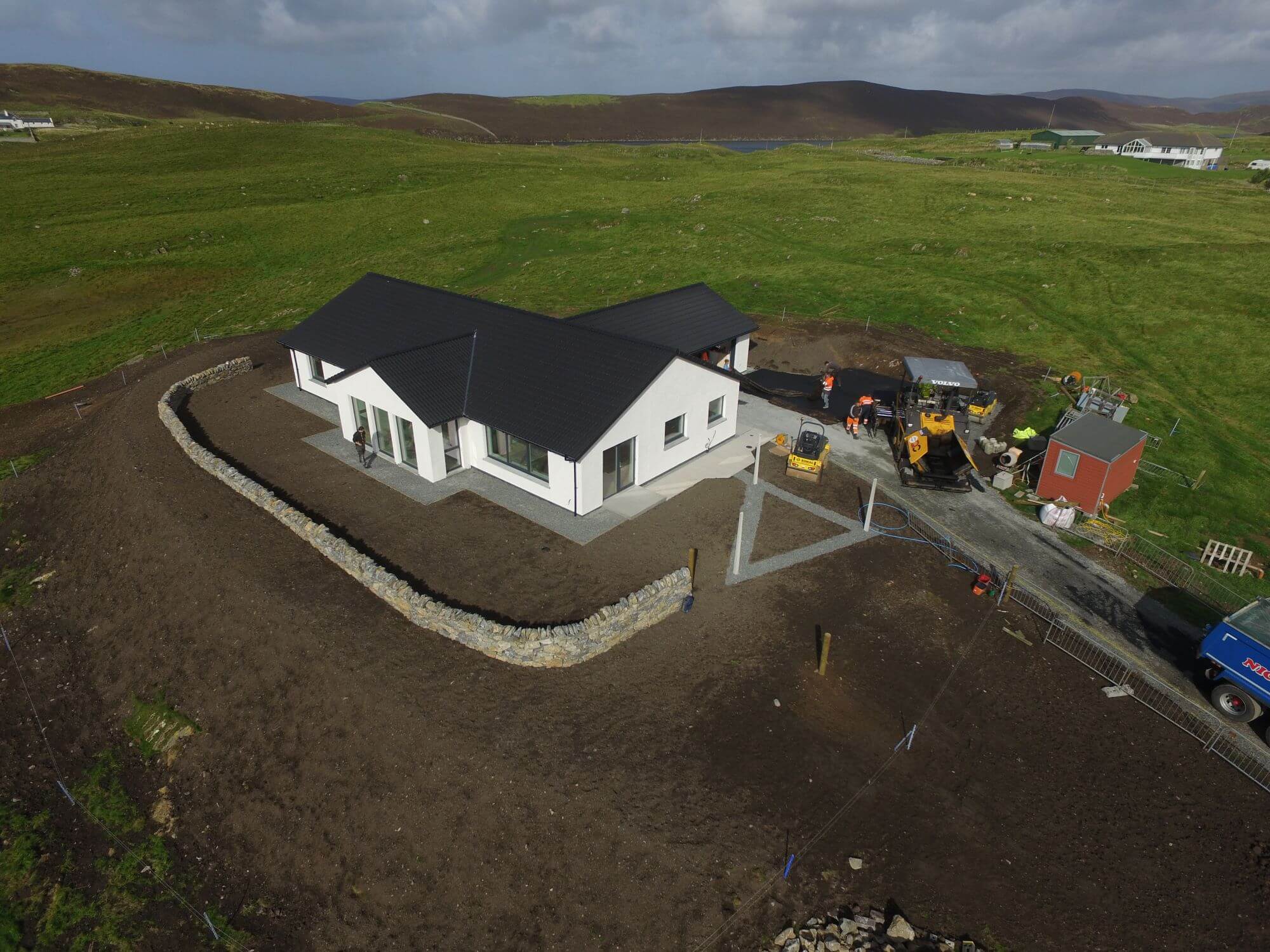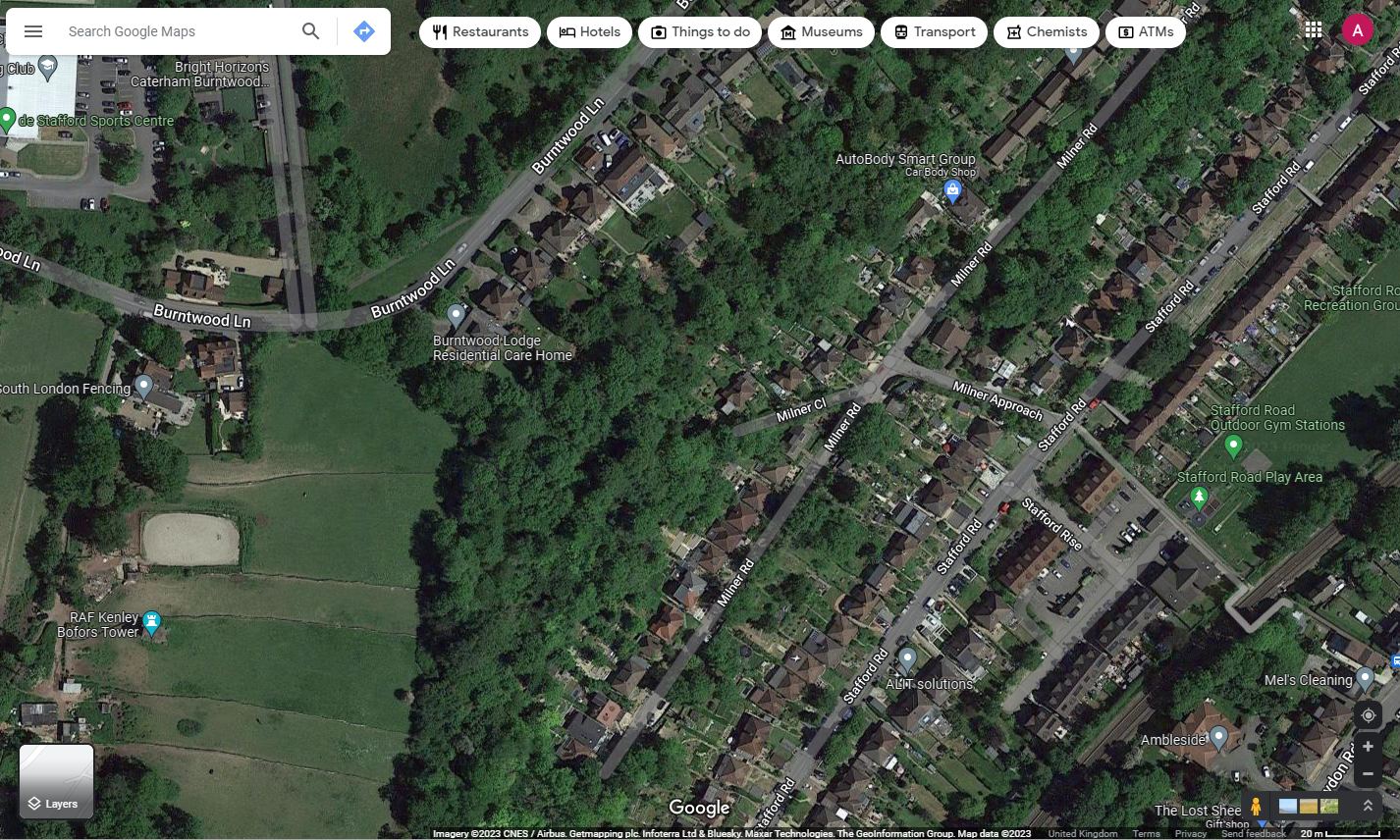If you’re planning a self-build, finding a plot of land for building is likely to be one of the first hurdles you’ll face on your journey to living in your dream home. So we’re taking a look at everything you need to know about finding the perfect plot.
Before you start your search, think about:
- Finance: Decide your budget and how you’re going to finance the purchase – for example by releasing money from a house sale or by taking out a self-build mortgage. There are various Governement 'Help to Build' schemes available in England, Wales and Scotland (unfortunately, there's no Government-backed scheme currently available in Northern Ireland). These offer an equity loan to help with the purchase of land and cost of building. For example, under the Help to Build scheme in England, eligible first-time self-builders can borrow up to £600,000 to buy a plot of land. The plot can be between 5 to 20% of the total estimated cost for the project (up to 40% in London). Useful links:
- Search area: When it comes to narrowing down your search area, concentrate your search on just a few areas you’d like to live in. Searching for property is an intensive process and if you spread yourself to thinly across a large search area, it’s easy to miss opportunities to buy plots that come up for sale.
- Legal matters: Get a solicitor involved early on, and make sure they are experienced in land sales. They will be able to look at the terms of any planning permission that comes with the plot and identify potential issues. For example, site access.
- Architecture: If you’re already working with an architect, speak to them about your search and any plots you are interested in. They’ll need to know about any features or issues which might impact the design and build of your home.

Project by FMB member Marfield Joinery and Construction Ltd, Northern Ireland. The journey to walking through the front door of your own self-built home all starts with finding the right plot of land.
Where to find land for your self-build
1. Plot finding websites
Plot finding websites, like Grand Design’s land finder or Plotfinder.net, will provide you with the details of available plots in your search area. These can be useful - as they give a good indication of price and availability in your search area and will tell you which estate agents deal in local land sales. However, if you spot a suitable plot, your competition will be high. To get ahead, look at the agents who are posting the plots and contact them directly. They may be able to tip you off with building plots that are coming up for sale, but which haven’t hit the website yet.

2. Estate agents
Register with all agents operating in your target area. Make sure they know what you’re looking for and your budget. You may strike lucky and find a local agent with a good understanding of the types of site that are suitable for a self-build. They’ll also know about properties coming to market that might be suitable for demolition and re-build. Check in with each agent over the phone or in person, to make sure you stay on their radar.

3. Local landowners
This could mean farmers or homeowners with land to spare. Open up a conversation – they may be willing to consider releasing some of their land for sale. Bear in mind that the land probably won’t come with planning permission, so you’ll need to approach your local planning department and think about the logistics of submitting a request for planning permission before purchasing the land. It’s wise to get a contract in place with the landowner if you go down the planning permission route. For example, the contract might stipulate that they must agree to sell you the land if planning permission is successful.

4. Brownfield registers (England only)
Register with your Local Authority’s ‘Right to buy’ register. All local authorities in England have to keep a register of brownfield (previously developed) land that’s suitable for a residential development. This can be useful if you’re looking to include some land with your property for a smallholding or substantial grounds – however, sites under 0.25 hectares may not be included.
5. Map search
Use Google maps to spot potential plots and check against the Land Registry in England and Wales, Scotland or Northern Ireland, to find out who the current owners are. This can be a good way to identify smaller infill building plots or niches that can’t be seen from the road. For example, you might look for large corner properties where you could potentially buy a rear portion of the garden and build a house on that’s accessible from the side street.

6. Auctions
Bidding at an auction can be daunting. Once the hammer falls, the terms of sale are legally binding and contracts are exchanged on the day. A change of mind can lead to charges and you can be liable for the cost of putting the property back on the market – so there’s little room for second thoughts. You’ll need to go in with a very firm idea of what you want to pay and the properties you want to bid on.
So, how can you be sure you’re bidding on a lot that is right for your self-build? Research is key. Request a copy of the catalogue either online or though the post and choose a shortlist of lots which might be right for your build. Make sure you go through the legal pack for any plots or properties that interest you to make sure there are no hidden issues. It can also be worth getting your architect involved at this stage, to see if they can identify anything that might impact your plans.
7. Custom build
This can be a hassle-free route to finding a plot and building your own home as a package. It’s a route to self-build that’s helped along by a professional house building developer. The developer will have typically purchased one or more serviced plots – that means they already have drains and services and roads to the plot in place.
Importantly, custom builds are covered by the various 'Help to Build' schemes offered across England, Wales and Scotland.
The degree to which you’ll be able to tailor your build depends on the offer available with the developer – as the term ‘custom build’ can cover anything from a serviced plot that’s a blank canvas that's ready to build on, to a ‘turnkey’ development that's more akin to buying a new-build house. Or you might find a happy medium with a shell build that you can completely customise inside.
It’s worth noting that there may be restrictions on what can be built on the site and the design will often need to complement neighbours in the same development, if it sits within a block of other serviced plots.
If this sounds like the option for you, a good place to start your search is with the FMB’s Find a Builder search tool, refining your search by custom or self build. All of our Master Builder members have been vetted and their work has been independently inspected, so you can rest assured your future home is in good hands. For more tips on finding the right builder for your project, check our ultimate guide to choosing a builder.
8. Word of mouth
If you’re looking for a rural plot, a chat with a local pub landlord or shop owner might bear fruit and provide you with some leads. If you’re looking for a small urban plot and are thinking of purchasing a private garden, garage or infill site, then a letter-drop to residents of your favourite streets might give the current property owners the nudge they need to consider selling some of their land.

9. The Government’s asset disposal website
You can find Government land to buy online on the gov.uk website - where you can search for land and properties that the Government no longer need. If you can find a suitable plot you can contest its current use – if it benefits the community (which adding housing to the local infrastructure is likely to do) then they may consider change of use.
Found the perfect plot?
If it's time to start planning your build, our Ultimate Guides are a good place to start your research. Find out everything you need to know about building a house with our ultimate guide to self-build, read up on planning permission, building regulations or start your search for a local builder who specialises in self-build and custom-build with our Find a Builder online search. All of our members have been vetted and their work is independently inspected on-site to ensure they are quality builders you can trust. Start your search today.

